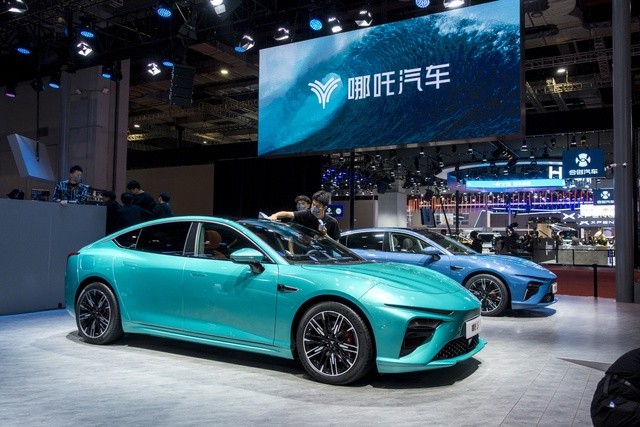The Rapid Development of China’s Electric Vehicle Industry in Just 3 Years
The global market for high-end electric vehicles may undergo a major shift as Apple terminates its decade-long electric car project while Chinese competitor Xiaomi takes the lead. Xiaomi, a renowned Chinese smartphone manufacturer, has received nearly 90,000 orders within the first 24 hours of launching its SU7 sedan model, which bears a striking resemblance to the popular Porsche Taycan. With a starting price of around $30,000, the SU7 is approximately $4,000 cheaper than the Tesla Model 3.
Advantages of Smartphone Manufacturers in the Electric Vehicle Industry
As electric vehicles become increasingly advanced, smartphone manufacturers possess certain advantages in this sector. They are experienced in designing visually appealing and user-friendly software, managing complex supply chains, and integrating components such as cameras and sensors seamlessly. Xiaomi’s CEO, Lei Jun, positions the SU7 as a “dream car” that can compete with Tesla and Porsche models. With a $10 billion investment over the next 10 years, Xiaomi aims to become one of the top five global car manufacturers within the next 15-20 years.
Xiaomi’s Impact on China’s Automotive Industry
Xiaomi’s efforts aim to elevate China’s automotive industry. Experts predict that the company will sell approximately 100,000 vehicles this year, surpassing Tesla’s sales of 140,000 Model 3 cars in China last year. BYD, another major Chinese electric vehicle manufacturer, expects to produce around 2.8 million electric cars in mainland China by 2023. It is worth noting that Xiaomi is not the only Chinese smartphone manufacturer venturing into the electric vehicle market. Huawei, for instance, differentiates itself by collaborating with various car manufacturers to create remarkable designs. The company also provides software and hardware components for automobiles through its “Huawei Inside” initiative.
Xiaomi’s Expansion into Electric Vehicle Manufacturing
Xiaomi not only possesses a strong presence in the smartphone market but also produces and sells various electronic products, ranging from rice cookers to vacuum cleaners. This established reputation can potentially facilitate Xiaomi’s entry into the automotive market, as long as there are no issues related to driver safety and road regulations. However, some experts suggest that the electric vehicle venture may not yield immediate profits due to intense price competition. Xiaomi will need to increase expenditures and invest heavily in research and development, which differ significantly from the processes involved in manufacturing smartphones and household appliances.
Xiaomi’s Impressive Manufacturing Process
Satellite images of Xiaomi’s factory have already garnered attention. The factory, which began construction in April 2022, has now entered the stage of producing complete vehicles. The number of vehicles parked in the factory’s parking lot has significantly increased. The factory’s construction occurs in two phases, with phase 1 spanning approximately 720,000 square meters and being completed in June 2023. Phase 2 is expected to commence in 2024 and conclude in 2025.
A Unique Approach from Xiaomi
Despite Xiaomi’s lack of experience in the automotive industry, it excels in supply chain management. The company has entered the race during a period of relative stability and maturity. Unlike Apple, Xiaomi seems undeterred by price competition, although recent criticisms surrounding delayed delivery times and failure to comply with refund commitments have surfaced. Videos and images of accidents involving Xiaomi’s SU7 vehicles have been circulating on Chinese social media platforms. Experts quickly discovered software issues with the traction control system, leading to concerns about driver safety.
The Challenges Ahead for Xiaomi
Previously, Xiaomi announced receiving 50,000 orders within the first 27 minutes of the launch and nearly 89,000 orders within 24 hours. While impressive, this large volume of orders poses challenges in fulfillment. Reuters reports that customers will face lengthy waits before receiving their vehicles, with delays ranging from 4-7 months depending on the model. Some customers have encountered difficulties canceling their orders and reclaiming their deposits, which amount to CNY 5,000.
As Xiaomi ventures into the electric vehicle market, it must develop expertise and overcome various obstacles, including intense price competition and the intricacies of regulations. Nevertheless, with its strong brand reputation and massive investment, Xiaomi is well-positioned to contribute to the remarkable growth of China’s electric vehicle industry.

